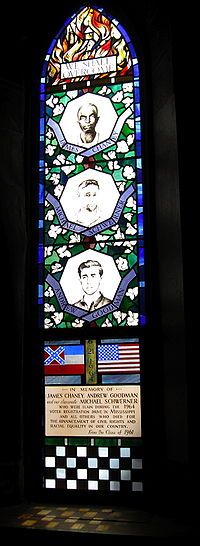 The US Olympic Committee learned this week that you should never insult 2 million people from around the world who have very sharp objects in their hands. As was reported here, the US Olympic Committee sent an insulting cease and desist letter to Ravelry, a knitting-based social network for hosting a knitting “olympics” called “Ravelympics.” Needless to say the worldwide protests came in faster than you can knit one, purl one. The USOC seeing the error in their thinking issued an apology to the knitters. The initial apology from Patrick Sandusky, USOC Chief Communications and Public Affairs Officer, was somewhat unapologetic, excusing the letter, as their “standard form”
The US Olympic Committee learned this week that you should never insult 2 million people from around the world who have very sharp objects in their hands. As was reported here, the US Olympic Committee sent an insulting cease and desist letter to Ravelry, a knitting-based social network for hosting a knitting “olympics” called “Ravelympics.” Needless to say the worldwide protests came in faster than you can knit one, purl one. The USOC seeing the error in their thinking issued an apology to the knitters. The initial apology from Patrick Sandusky, USOC Chief Communications and Public Affairs Officer, was somewhat unapologetic, excusing the letter, as their “standard form”
“Thanks to all of you who have posted, tweeted, emailed and called regarding the letter sent to the organizers of the Ravelympics.
Like you, we are extremely passionate about what we do. And, as you may know, the United States Olympic Committee is a non-profit entity, and our Olympic team receives no government funding. We are totally dependent on our sponsors, who pay for the right to associate with the Olympic Movement, as well as our generous donors to bring Team USA to the Games.
The letter sent to the organizers of the Ravelympics was a standard-form cease and desist letter that explained why we need to protect our trademarks in legal terms. Rest assured, as an organization that has many passionate knitters, we never intended to make this a personal attack on the knitting community or to suggest that knitters are not supportive of Team USA.
We apologize for any insult and appreciate your support. We embrace hand-crafted American goods as we currently have the Annin Flagmakers of New Jersey stitching a custom-made American flag to accompany our team to the Olympic Games in London. To show our support of the Ravelry community, we would welcome any handmade items that you would like to create to travel with, and motivate, our team at the 2012 Games.”
Many of the knitters felt that this was a rather halfhearted and continued to express their annoyance, leaving messages like this on the USOC Facebook page:
“Patrick Sandusky, your apology falls well short of any real acknowledgement of any wrong doing on your part. Your clerk’s language was insulting and inflammatory, and not any part of any cease and desist or form letter I have ever seen. T…o follow it up saying “while you’re knitting, send us some of those things we didn’t want you knitting in support of us in the first place” is just adding fuel to the fire. Do yourself a favour the next time you try to protect the Olympic brand and the interest of your sponsors – do a little bit of research about the efforts you are trying to quash before sending threatening letters. If you had, you’d find that you just stopped the US members of a MASSIVE group of people from watching NBC and all of the sponsors’ ads because of your lack of judgement and your poor representation of the Olympic brand. Sincerely, Lisa Roman, Ravelry member since 2008″
I think the lady is quite miffed. Good! It’s about time someone told these arrogant jackanapes to get their heads out of their rectums.
Mr. Sandusky realizing that these folks were serious and not gong away easily, issued this up date:
“As a follow-up to our previous statement on this subject, we would again like to apologize to the members of the Ravelry community. While we stand by our obligation to protect the marks and terms associated with the Olympic and Paralympic Movements in the United States, we sincerely regret the use of insensitive terms in relation to the actions of a group that was clearly not intending to denigrate or disrespect the Olympic Movement. We hope you’ll accept this apology and continue to support the Olympic Games.”
Now that is the way activists get it done. Thank you, Ravelry. Knit on!


 On this day in 1944,
On this day in 1944, 
 Why is the New York Times surprised? I’m not.
Why is the New York Times surprised? I’m not.




 The Greeks have decided to stay the course with the center right and have given a
The Greeks have decided to stay the course with the center right and have given a  In France, exit polls indicate that
In France, exit polls indicate that  There are no results yet for Egypt. But there is news and it is not good for the Egyptian people no matter who wins.
There are no results yet for Egypt. But there is news and it is not good for the Egyptian people no matter who wins.
Recent Comments